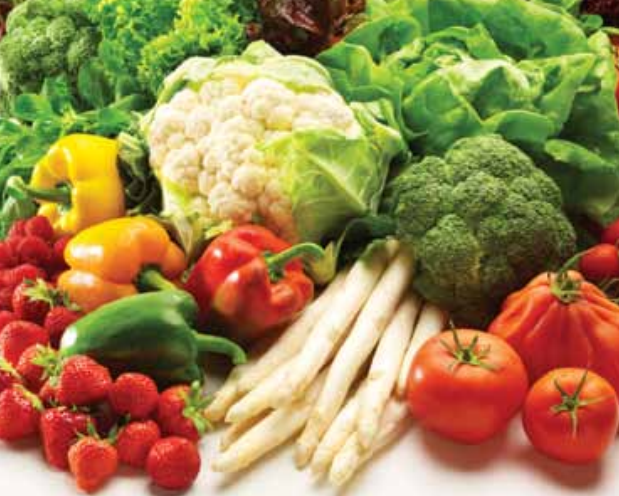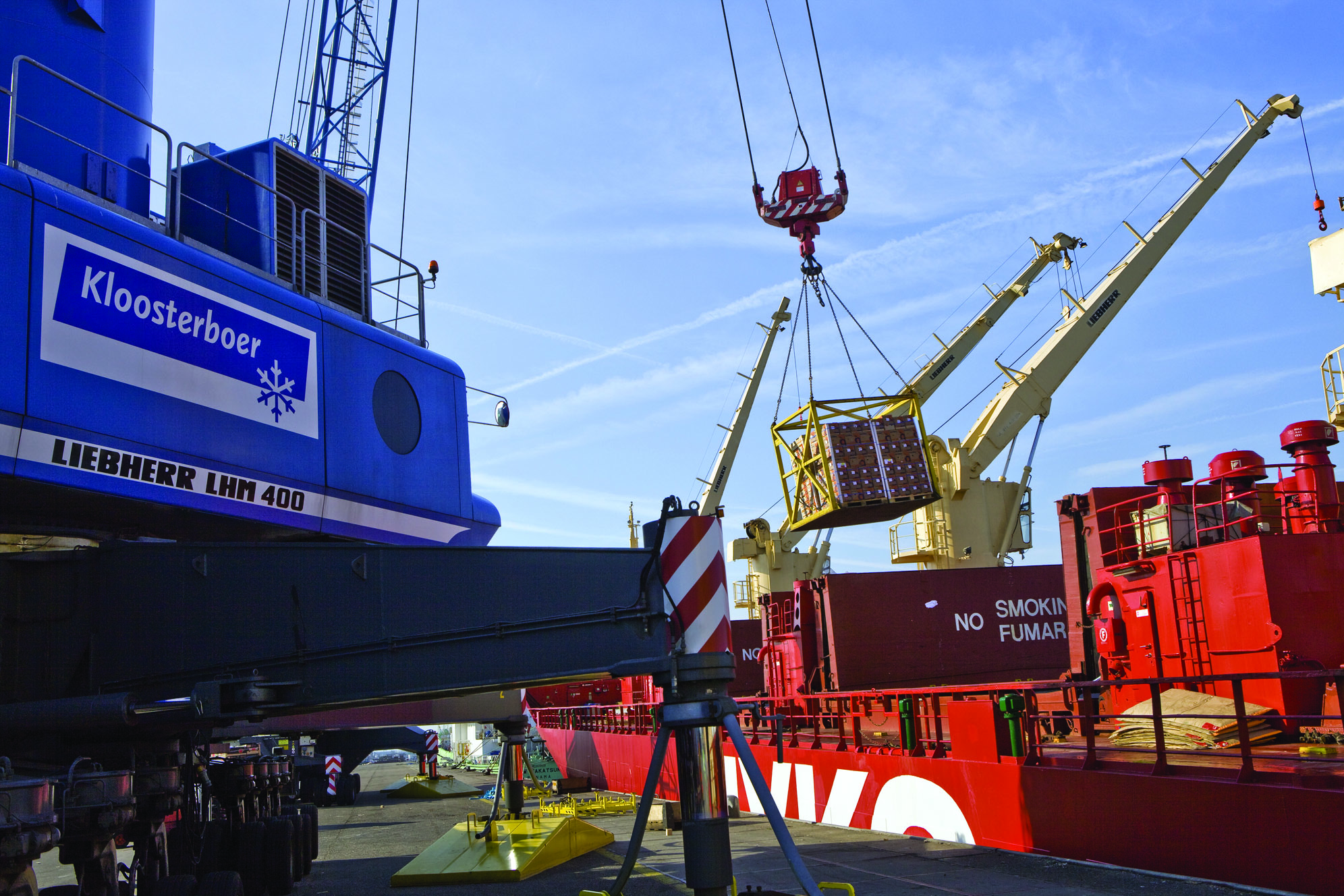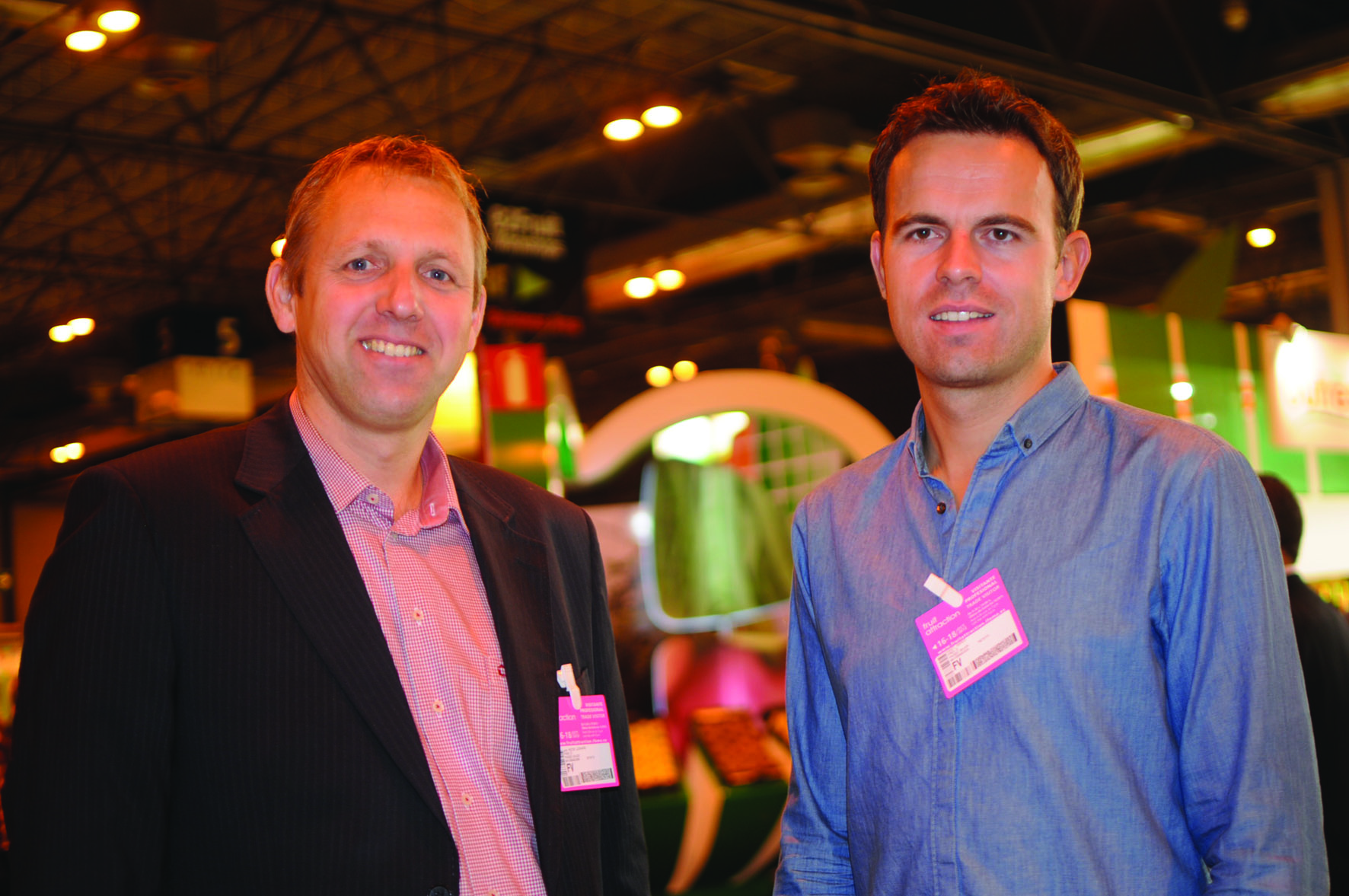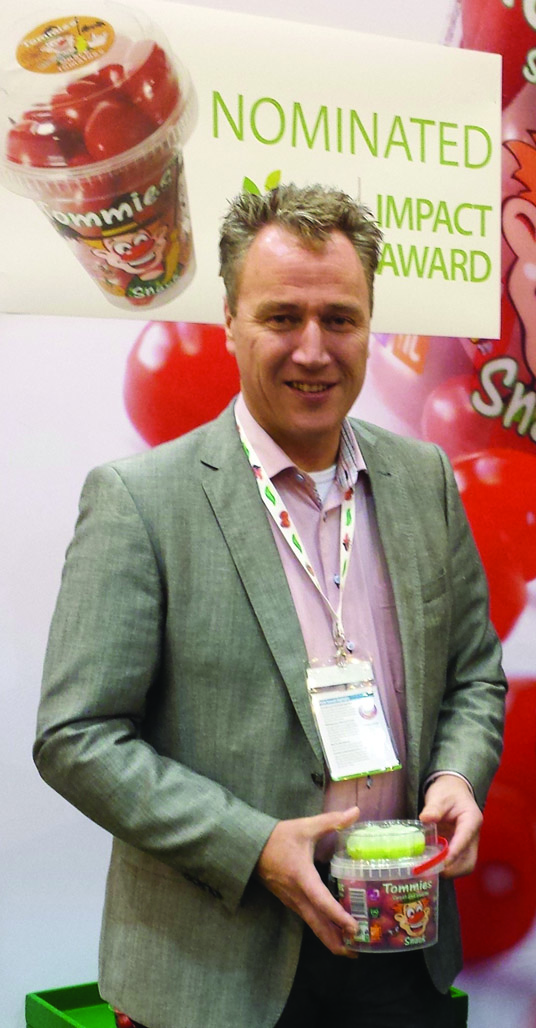
“If you are a logistics provider in one of the busiest ports in the world, efficiency can become a key factor in the operational process.” So says Antonio Oken, managing director of Opticool. Located right in the heart of Rotterdam Port, this company is a good example of a logistics operator dedicated to stevedoring, fresh logistics and fresh packing. It has made it its mission to keep things basic and transparent. “Logistics is logical thinking. It has to be straightforward because that reduces costs and increases quality,” Oken said. The launch of innovative, cost-reducing ideas is paramount in this process. “We want to remain a pioneer in the logistics process.” One way of doing just that is to use inland shipping between the Rotterdam deep sea terminals and the ports of Nieuw Mathenesse, where Opticool is located, instead of trucks. This method enables quicker handling of the containers since waiting times at the terminal and traffic jams are avoided. The environment benefits from this way of transportation, too. Depending on the terminal from which the journey starts, ECT or Delta, a reduction in CO2 emissions of 84% and 57% cent respectively is accomplished as well as a 40% reduction in freight movement. “In our green business operations, the use of inland shipping is of great importance in promoting our organisation-wide vision.” Oken said.
Unburdening the supplier and retail buyer
“We focus on unburdening our customers. The Rotterdam port is a platform into Europe that everyone can join. It’s our job to organise the logistics process as fast, as cheaply and as well as possible for the people using this platform,” says Antonio Oken. Having started only 10 year ago, Opticool has created a young, flexible team and is now firmly established as one of the leading service providers in the field of fresh fruit storage and handling in the port of Rotterdam. From its premises in the port, with a capacity of 19,000 m² of refrigerated storage spread over 20 cold rooms and a total of 27 dock shelters, Opticool offers a full range of logistics services from the arrival of the goods in the ports of Rotterdam or Antwerp until the time of delivery. “As soon as your containers arrive at one of our 20 cold stores, the fruit is checked for temperature, packaging and general quality. Then, by way of a unique barcode, the pallets are registered in Opticool’s warehouse management system, linking our unique pallets’ ID to its own pallet ID. This enables full tracking and tracing of any pallet,” Oken explained. Since last year, Opticool has also been a proud member of the Agromerchant Group from the US.
More market stability for Dutch produce
Johan Hensen, managing director of Haluco, one of the leading Dutch growers and exporters’ organisations, looks back on a reasonably good season. “2015 was a positive year. From the spring to July we had more exports,” he said. And he predicts a positive future for the Dutch horticultural sector; thanks in part to innovation. “Dutch growers are leading the way in innovation and quality upgrades. We are still amazed by them,” Hensen said. Another field of innovation is improvement in supply chain management. Thinking about how the chain changes and connecting with customers’ wishes is becoming increasingly important. An additional bright point for the future is the increasing balance between supply and demand. “The flows sold in Eastern Europe are becoming more sustained and there is more structure in the sales. The demands that purchasers make call for a long-term relationship with growers, too. That creates stability.”
New markets for peppers and tomatoes
In terms of produce, besides bulk products like block peppers, which take up 90% of production, and the larger vine tomato, there is increased demand for the sweet pointed pepper and the finer segments of tomatoes. Haluco sells its fresh produce all over Europe and is positive about new markets as well. “Sales into the US and Canada continue and Asian borders are opening for Dutch products” says Hensen. The opening up of far-away markets puts an increasing emphasis on quality and consumer-orientation. “The costs in reaching those markets are high so the products will have to comply with the highest quality demands,” Hensen said.
Good import market such as citrus & stone fruit too
Recognised for its expertise in the stone fruit category, Wilko Fruit today supplies the large majority of supermarket chains in the Netherlands. “Our sales made big progress in 2015 and supplied 13 retailers in the country,” states Wilko v.d. Swaard, the company’s founder. He confirms the increasing consumption of stone fruit, largely due to the rising level of eating qualities in the new varieties and the larger volumes available from Spain in particular. “The Iberian peninsula provides us with 90% of our sourcing for all categories: cherries, peaches, nectarines, flat fruit and apricots”. Wilko Fruit runs its own office in Valencia for the quality checks and packaging. The Dutch specialist makes a selection of the best growers from the different provinces of Huelva, Seville, Murcia and Lerida. Citrus is the second category traded by Wilko, followed by apples, melons and grapes. The best selection is supplied under the “Gaudias” brands, which enjoys a good reputation on the market. Among its novelties and exclusives there are “Chocolate” navelinas, with a brown colour and an exquisite taste. It is packed in 6 kg boxes of 50×30cm. About 10 years ago in an orchard of navels near the WilkoFruit offices in Valencia, some completely brown fruit appeared on a branch of a navel tree. An analysis was carried out and it was decided to go ahead with a mutation. They grafted it and the result was the brown orange we have today. The “Chocolate navel” has the following characteristics: it is highly aromatic, low acidity, very sweet to eat, has a rather long shelf life and a good proportion of juice. Wilkofruit began selling this orange several years ago and has seen greater success every year. “When December comes, our clients ask us when we can send them the first ones.” Today, Wilkofruit sells this orange exclusively in Europe except in Germany, where the producer has an exclusive agreement with a major supermarket chain.
MW





